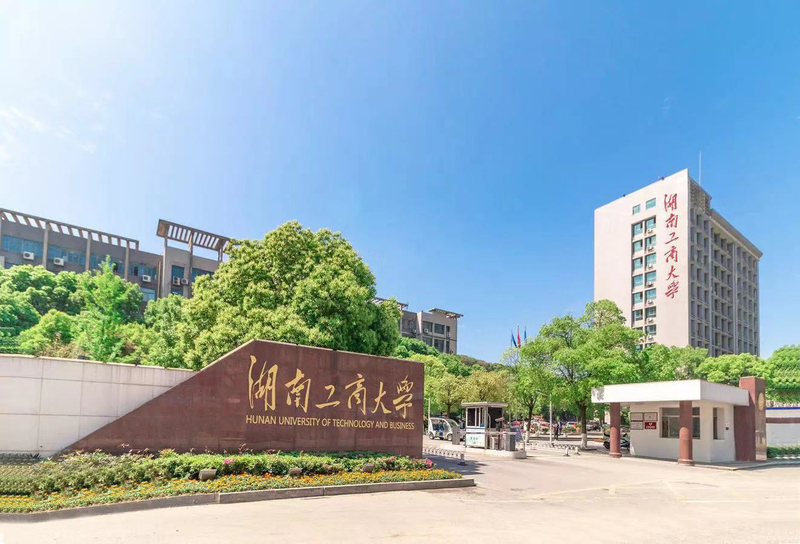[Study Times] Chen Xiaohong, Academician of the Chinese Academy of Engineering: Systematic Planning and Advancement of New Quality Productive Forces
2024-07-11
The concept of new quality productive forces is the result of applying the basic principles of Marxism to China's specific realities. It is based on the development laws of the productive forces system, taking into account China's development stage, environment, and existing conditions. It is rooted in the broader strategic context of the great rejuvenation of the Chinese nation and the major changes unseen in a century. New quality productive forces represent the evolutionary direction of advanced productive forces. It is a complex system that must be understood with a systematic perspective, considering its universal connections, comprehensive system, and developmental changes. Systematic planning and advancement of new quality productive forces are essential.
A comprehensive understanding of new quality productive forces
New quality productive forces constitute a complex system made up of new technologies, new industries, new elements, and new organizations. It requires an integration of historical and current perspectives, a fusion of theory and practice, and a thorough consideration of elements, structures, and functions.
Grasp the "new" carriers through the integration of history and reality. According to Marx and Engels' theoretical viewpoint, "the totality of productive forces reached by people determines the social situation." Looking at the two previous systematic new quality transformations of human society’s productive forces, each iteration of major social labor materials has driven the evolution from the hunting and gathering era to the agricultural era, and from the agricultural era to the industrial era. In today’s era, digital information technologies such as big data, artificial intelligence, cloud computing, blockchain, and the Metaverse are rapidly evolving. Intelligent machines are gradually replacing functional machines as the primary labor materials in society. With new knowledge and technologies as the carriers of new tools, disruptive and systemic changes in productive forces are accelerating. The third systematic new quality transformation of productive forces has arrived, marking humanity’s transition from the industrial age to the digital information age. It is through the integration of history and reality that we understand how productive forces, by determining production relations, shape various fields of human society.
In the integration of theory and practice, clarify the concept of "new". General Secretary Xi Jinping emphasized: "High-quality development requires new theories of productive forces for guidance. The new quality productive forces have already formed and demonstrated strong driving and supporting power for high-quality development in practice. We need to summarize and generalize these from a theoretical perspective to guide new development practices." The new quality productive forces can guide the practice of our country's economic and social development, while new development practices continuously enrich and improve the concept of new quality productive forces. Both work together to drive reasonable growth in the overall economic volume and steady qualitative improvement. Under the new development philosophy of "innovation, coordination, green development, openness, and sharing," it is necessary to grasp the "new" concept that centers on the leap in "laborers, labor materials, labor objects, and their optimal combinations as fundamental connotations, with a significant increase in total factor productivity as the core indicator." This concept should continuously highlight the significant characteristics of new quality productive forces, which include high technology, high efficiency, and high quality.
View the "new" system comprehensively from the perspective of elements, structures, and functions. The productive forces system is a functional whole formed by the combination of productive elements in specific proportions and forms, and it needs to be understood from the systemic levels of elements, structures, and functions. The new quality productive forces system consists of new types of laborers, labor tools, and labor objects, forming a productive forces system. At the industrial level, it primarily manifests as a modern industrial system formed by the optimized combination of new elements. Throughout the history of human social development, technology has always been the core element in the productive forces system. Certainly, to understand and develop new quality productive forces with a systemic perspective, it is essential to not only focus on technological innovation but also on comprehensive optimization of institutions, environment, culture, etc. This includes establishing a high-standard market system, innovating the allocation of production factors, and optimizing industrial development structures to better harness the leading, stimulating, and supporting functions of new quality productive forces.
Systematically advancing the development of new quality productive forces
The development of new quality productive forces relies on the deep integration of the innovation chain, industrial chain, capital chain, and talent chain. Based on the new development stage and with new quality productive forces guiding the new normal of economic development, it is necessary to advance systemic reforms, ensuring alignment between the overall and specific aspects, as well as unity between comprehensive advancement and key breakthroughs.
Actively utilize new technology as a key factor. To develop new quality productive forces, it is essential to focus on driving new technology research, application, and iterative innovation as the core momentum. This will help open new production areas, expand production space, promote industrial structure adjustment and optimization, upgrade production methods, improve product quality and production efficiency, and drive sustained economic growth. This requires appropriately balancing the relationships between self-reliance and self-improvement in science and technology and open innovation, intellectual property protection and technological standardization, and technological innovation and technology diffusion, in order to build a globally competitive technological innovation ecosystem for the development of new quality productive forces. In the digital economy era, it is crucial to grasp digital intelligence as the most key increment and variable in developing new quality productive forces. It is important to accelerate the transformation and diffusion of various digital technology innovations, cultivate and expand core industries of the digital economy, while reducing energy consumption and pollution emissions, and minimizing the environmental impact of production processes. It is also essential to utilize the spillover effects and network synergy of digital technologies to create internationally competitive digital industry clusters.
Vigorously develop new industries as the core carrier. A thriving industry leads to a thriving economy, and a strong industry strengthens the nation. To develop new quality productive forces, it is essential to prioritize the growth and revitalization of industries. It is essential to transform and upgrade traditional industries, cultivate and expand emerging industries, plan and build future industries, and improve the modern industrial system. It is important to focus on developing new-generation information technology, new energy, new materials, high-end equipment, new energy vehicles, green and environmental protection, civil aviation, shipbuilding and marine engineering equipment, and other emerging industries. Also, it is critical to vigorously advance future industries such as the Metaverse, brain-machine interfaces, quantum information, humanoid robots, generative AI, bio-manufacturing, future displays, future networks, and new energy storage. At the same time, in the process of promoting industrial development, it is important to foster a deep integration of digital technology with the real economy. This involves continuously upgrading industrial development methods towards technology-intensive and knowledge-intensive models, and shifting the focus towards high value-added areas. It is also crucial to improve the standardized work system for new industries, ensuring efficient and coordinated research, formulation, implementation, and internationalization of standards. Additionally, it is essential to continuously enhance the resilience and security of industrial and supply chains to ensure the safety and reliability of the industrial system.
Effectively utilize new elements as a crucial foundation. It is important to leverage data as a fundamental national strategic resource and key production factor, taking full advantage of its openness, cross-temporal and spatial nature, and sharing characteristics. This will facilitate the cross-regional flow of resources, transform production methods, reconstruct industrial ecosystems, and promote increasing returns to scale. It will also provide new pathways for enterprises, industries, and sectors to find optimal solutions under traditional resource constraints, while fostering knowledge penetration across different fields, generating new knowledge, and creating additional value. It is critical to promote the orderly and shared openness of scientific data, relying on massive data to shift scientific research paradigms from traditional hypothesis-driven approaches to data-intensive paradigms based on scientific data exploration. This will support cutting-edge research and technological innovation. Through the application of big data, we should drive breakthroughs in industrial Internet by overcoming time and space limitations, enabling the scheduling and optimal allocation of production factors, and promoting collaborative development across the industrial chain. It is also important to rely on data elements to shift enterprises from large-scale standardized production to customized and even personalized production, better maintaining the dynamic balance between supply and demand.
Strengthen new organizations as a necessary support. We should develop strategic plans for new quality productive forces with foresight, and define goals and paths for its development tailored to local conditions. It is essential to strengthen the dynamic coordination capabilities of various departments, build a networked working environment and collaboration platforms, enhance organizational synergy, and promote a unified effort across society for the development of new quality productive forces. It is critical to utilize advanced technological methods and innovative concepts to integrate various resources—such as material, manpower, technology, and finance—with industries. This will drive high-quality transformations in production methods, production relationships, and production factors through integrated fusion. It is critical to strengthen data-driven analysis and forecasting, establish flexible decision-making mechanisms and responsive market systems; innovate adaptable reward mechanisms and benefit distribution methods to encourage the participation of social innovation forces. On this basis, we should create a dynamic innovation ecosystem through innovative policies, mechanisms, and cultural approaches, and stimulate innovation across society.
Uphold talent as the primary resource. Education, technology, and talent are interconnected elements that promote new quality productive forces. Developing new quality productive forces requires building a solid foundation through human capital upgrades. Thus, it is important to continue advancing educational reform, actively build an education system tailored to new quality productive forces, and cultivate new quality talents, such as those skilled in "data intelligence+" and "artificial intelligence+", while accelerating the development of outstanding engineers. It is important to enhance organized research by focusing on major scientific projects to gather talented teams and strengthen support for technological innovation talents. It is especially critical to value entrepreneurs and business leaders, uphold entrepreneurial spirit, and cultivate a group of technically skilled entrepreneurs and outstanding business leaders who excel at integrating new production factors into traditional industries, making them the core force of new quality productive forces. It is critical to promote salary distribution to favor those who tackle key core technologies and achieve significant innovation results in new quality productive forces. It is also essential to explore methods such as equity dividends and stock options to support entrepreneurial talent, allowing the innovative energy of various talents to flow sufficiently.
(The author is Chen Xiaohong, academician of the Chinese Academy of Engineering, Secretary of the CPC HUTB Committee, and Director of Xiangjiang Laboratory)









